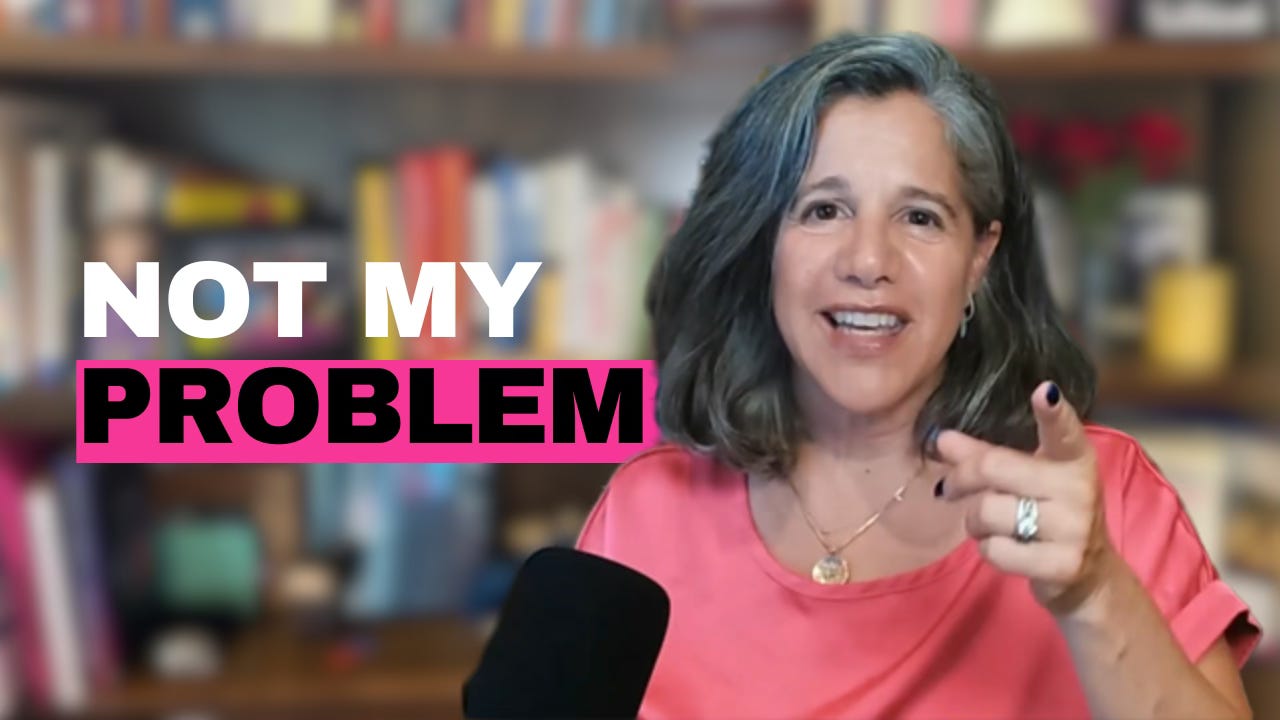How a cancer patient can respond to bad advice
Why Acknowledging Reality Beats Forced Optimism After a Cancer Diagnosis
When you tell people “it’s cancer,” people mean well. They tell you to stay positive. Think good thoughts. Everything happens for a reason. But here’s what trauma research actually shows: forcing yourself to be positive when you’ve just received devastating news doesn’t help you cope. It makes coping harder.
I learned this the day my doctor called during a Zoom meeting. “I’m sorry, it’s malignant.” The surgery I’d planned for the next day—my prophylactic bilateral mastectomy meant to end cancer’s hold on my family—was canceled. Instead of prevention, I got a diagnosis.
My first emotion wasn’t fear. It was annoyance. Then embarrassment. I thought I’d done everything right. Researchers have confirmed: those feelings? Completely normal. Your initial response to trauma—whatever it is—isn’t something to fix or suppress.
The Problem With Toxic Positivity
Trauma-informed approaches emphasize validation, safety, and empowerment, which run counter to toxic positivity’s demand for constant happiness. What is Toxic Positivity? The Impact of Toxic Positivity on Trauma Survivors. When you’re pressured to “be positive” immediately after diagnosis, you suppress authentic emotions, which hinders the processing of traumatic experiences that are crucial for healing. What is Toxic Positivity? The Impact of Toxic Positivity on Trauma Survivors.
Think about what happens when someone tells you “just stay positive” after you share your cancer diagnosis. These dismissive phrases invalidate feelings instead of validating them, creating pressure to appear happy regardless of genuine distress. Toxic Positivity Exposed: The Harmful Effects of Optimism. You end up managing their discomfort instead of processing your own.
For trauma survivors, toxic positivity isn’t just annoying; it can be triggering because it communicates that your pain isn’t welcome in the relationship. Why toxic positivity can be triggering to trauma survivors. – Use Your Damn Skills. You’ve lived through cancer in your family. You know what treatment looks like. And now someone’s telling you to find the “lesson” in your diagnosis before you’ve even had time to absorb the news?
That’s not support. That’s avoidance.

What Actually Helps: Grounding in Reality
Here’s what the research shows works: acknowledging what’s happening. Not spinning it. Not reframing it. Just naming it.
When you hear devastating news, your sympathetic nervous system activates, triggering the release of stress hormones including adrenaline and cortisol, which increases your heart rate, causes sweating, and raises blood pressure Grounding Techniques: Exercises for Anxiety and Panic Attacks | U.S. News. This is your body’s fight-or-flight response kicking in.
The first grounding step is simple: put your hand on your chest, take a slow breath, and say, “This is happening and I am still here.” This works because grounding provides immediate benefits, including the regulation of heart and respiratory rates, reduction of muscle tension, and calmer brain wave patterns. Grounding to Treat Anxiety | Medical Research Archives.
You’re not trying to feel better. You’re trying to remind your nervous system that right now, in this moment, you’re not in physical danger. Grounding techniques help you return to the present moment during panic or traumatic flashback by focusing on tangible objects and sensations. Grounding Techniques: Exercises for Anxiety, PTSD, and More.
Name five things you see. Feel your feet on the floor. These aren’t platitudes. They’re physiological interventions that interrupt your body’s panic response.
Dr. Laura Esserman, a breast cancer surgeon and researcher, told me something that changed how I understood urgency:
“Cancer’s only urgent because now you know about it.” - Dr. Laura Esserman, MD, MBA
You have time. Not endless time, but time to breathe. Time to think. Take the time to find your footing before making decisions.
Choosing Your First Share
Here’s where selective disclosure matters. Research shows that disclosure can be beneficial to the extent that it allows individuals to obtain social support and alleviate the psychological costs associated with suppression. But notice the word “can.” Not all disclosure helps equally.
Studies examining social support after trauma have found that support from friends may be invaluable during recovery, perhaps because the inherent value of these relationships lies in their intentional nature rather than their obligation. Sources of Social Support and Trauma Recovery: Evidence for Bidirectional Associations from a Recently Trauma-Exposed Community Sample - PMC. When I got my diagnosis, my sister-in-law Heather was in the house. I said, “The doctor called. The biopsy was positive. I’m not having surgery tomorrow. Can you just be with me?”
That’s it. No explanations. No managing her reaction. Just presence.
Delayed disclosure predicts worse outcomes, suggesting that sharing soon after trauma can be beneficial. Individual Differences in Trauma Disclosure - PMC. But you don’t need to tell everyone. You need to tell one safe person who can sit with you without needing you to be okay.
I’ll tell you from experience: it gets exhausting telling people “I have cancer” and then fielding their questions, their tears, their need for reassurance. Pick one person first. Let them help carry this before you expand the circle.
What You Actually Control
You don’t control cancer’s timing. You don’t control when treatment starts. You don’t even fully control the treatment plan—that’s a collaboration between you, your medical team, and what your specific cancer demands.
But you control how you ground yourself. You control who you tell first. You control whether you force a smile or let yourself feel annoyed, scared, angry, or all three at once.
Trauma-informed care recognizes that even the most acute responses to trauma are natural responses to manage overwhelming experiences—they’re not signs of weakness or pathology. Your initial reaction, whatever it is, is your system trying to protect you.
The path forward isn’t about positive thinking. It’s about honest thinking. It’s about acknowledging “this is happening” before you move to “and here’s what I’m going to do about it.”
That acknowledgment—that refusal to skip past the hard truth—is where real power begins. Not the power to make cancer disappear. The power to face it without losing yourself.
Reflection Questions:
When you first heard your diagnosis, what was your immediate emotion? Not what you thought you should feel, but what you actually felt?
Who in your life can sit with difficult news without needing to fix it or spin it positive?
What does grounding yourself look like for you? What helps you return to the present when panic sets in?\


